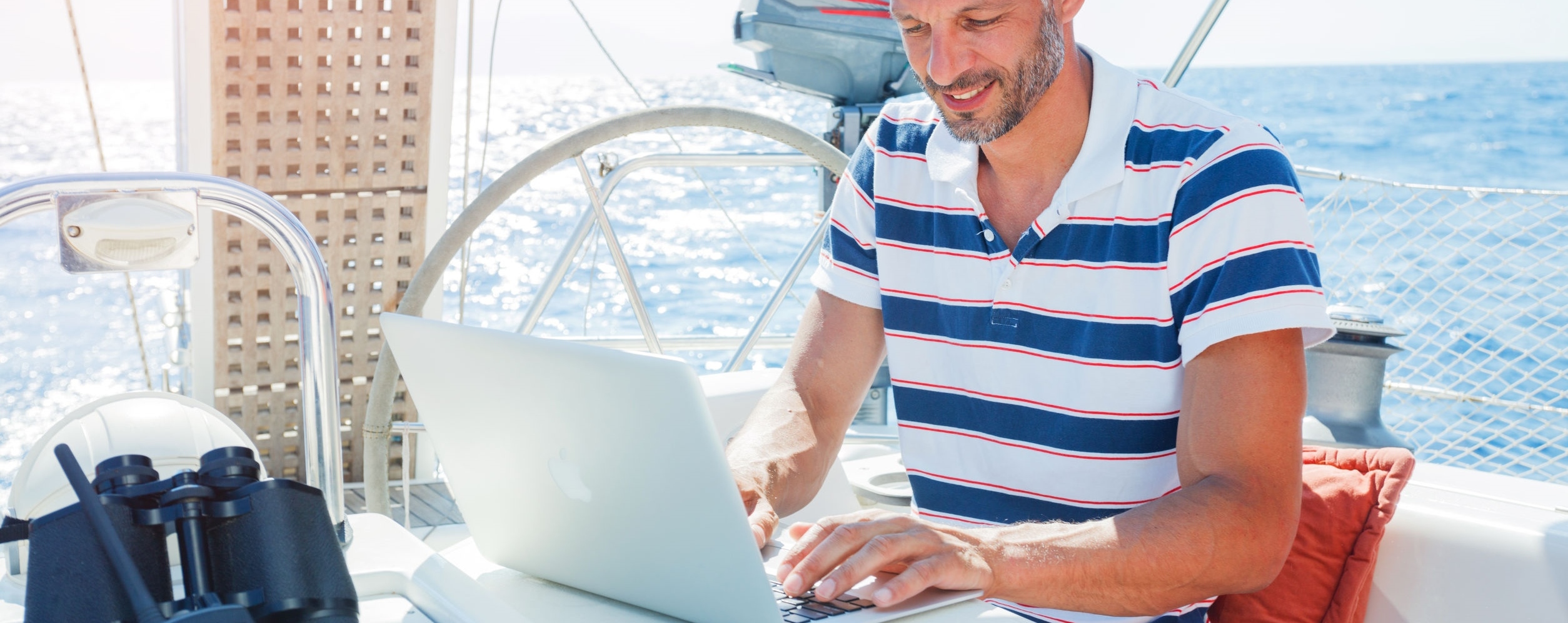Discover the 7 steps to becoming a competent skipper
1. Obtaining an inland navigation permit in Switzerland.
In Switzerland, before you can set sail as the skipper of a sailing yacht or the captain of a motor yacht, you must obtain an inland navigation licence (licence D or A). This licence certifies that you have the necessary knowledge to sail safely. To obtain it, you must pass a theory test and a practical test, organised at cantonal level.
2. Preparing for the theory test for the deep-sea licence with an online course
As a captain of a pleasure craft at sea, you need to have in-depth knowledge of various subjects such as navigation, weather, medicine, tides, maritime law and seamanship. These skills are assessed in a one-day written theory exam. The online course for the offshore licence covers all the subjects needed to pass the offshore licence exam.
3. Passing the theory test for the maritime licence
To obtain a sea licence, you must pass a theory test.In Switzerland, the CCS (Cruising Club Suisse) organises this exam.It takes place over the course of one day and consists of three parts: theory, tidal calculations and chart work. If you fail a part, you can take it again at a later date.To prepare, you can take a mock exam online, which will give you a good idea of your level.
4. Accumulate 1000 nautical miles
To obtain your sea licence, you must accumulate 1000 nautical miles and spend at least 18 days at sea. You must provide proof of this experience in the form of the skipper's signature and a copy of the logbook. It is important that the skipper confirms the manoeuvres and tasks you have carried out.
5. Maritime first aid course
To obtain an offshore licence, you must take a first aid course.
You must be prepared to react in the event of a medical emergency, which is crucial at sea where medical help can be far away.Although a traditional first aid course is acceptable, it is recommended that you take a course that focuses on emergencies at sea, such as the Swiss Maritime Academy's First Aid course.
6. Vision and hearing test
The skipper must have good eyesight and hearing to navigate safely.A certificate of vision and hearing is issued by a general practitioner, ophthalmologist or audiologist. These tests are standard, quick and inexpensive.
7. Beyond the sea licence
Once you've obtained your sea licence, further training is still important. You will learn from your own experiences and those of others, by sailing and taking responsibility for your journeys at sea. You can take advanced courses, such as sailing, radio communication or survival at sea. There are many yachting training opportunities, including those offered by the Swiss Maritime Academy.



